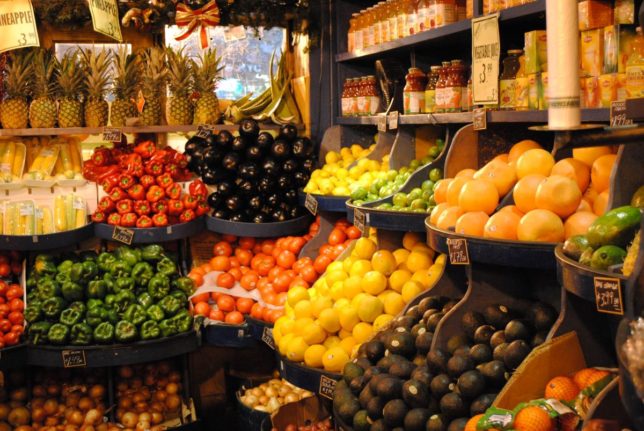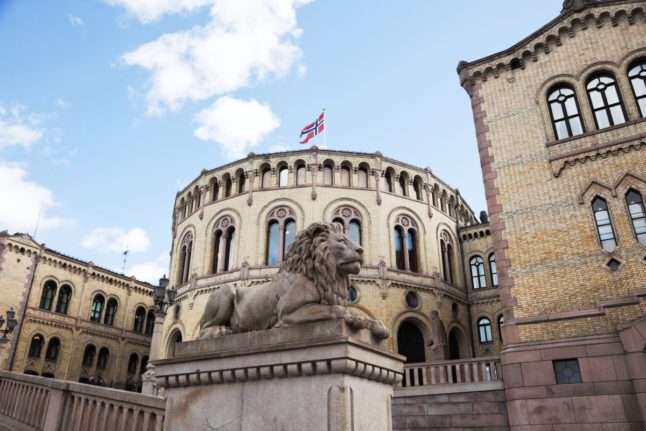The chains
There are four large supermarket groups in Norway. These are Norgesgruppen (which runs Jakobs, Kiwi, Meny, Spar, Joker and Nærbutikken), Coop (Coop Extra, Coop Mega, Coop OBS, Coop Prix), Rema and Bunnpris.
Out of those options, Rema, Kiwi and Coop Extra have long positioned themselves as the cheapest option available to consumers.
With Coop, in particular, it’s worth checking the store type as it could determine how much you pay for groceries despite the different stores belonging to the same chain.
Furthermore, stores like Meny and Jakobs try to position themselves as the more upmarket option for discerning customers.
In addition, these two, along with Coop Mega, will have a larger and more varied product selection.
Other supermarket groups, like the British chain Iceland, have tried to get a foothold in the market to little effect. For example, Iceland has a single store remaining, where once it had five.
Why are groceries so expensive?
Groceries in Norway are among the most expensive in Europe. Part of the reason for that is that a handful of chains dominate the market.
They also implement several other clauses, making gaining a foothold harder for other chains. For example, when closing a store, they may put a block on other chains being able to take over.
Secondly, the larger chains negotiate the best deals or sign exclusivity contracts with suppliers to try to muscle smaller players out of the market. Norway’s government has previously said it would do away with these rules, but things are yet to change.
The lack of competition as a result of this domination is one factor however other things contribute to high grocery costs.
Norway only produces around 50 percent of the food it needs to feed its population, and there are several initiatives to try and keep Norwegian farms competitive. There are high tolls on meat and dairy from abroad.
Farms in Norway are also relatively small compared to other parts of the world, and there are strict laws on the welfare of animals. This makes farming less profitable, so farmers sell their produce for much higher prices than other countries.
Loyalty schemes
Norway’s supermarkets offer many excellent loyalty schemes, with benefits coming in the form of exclusive discounts and cashback.
Rema’s loyalty scheme, Æ, is a smartphone app that anyone over 15 with a Norwegian mobile number and a smartphone can use.
Parents receive discounts on childcare products, and you receive 10 percent off all fresh fruit and vegetables and 10 percent off of your 10 most frequently bought items, meaning you can save money on the things you buy the most.
You can also sign up for their personal price cut scheme to receive tailor-made promotions.
Trumf covers three supermarket chains in Norway as well as convenience-store-cum-supermarket Joker.
With Trumf you get cashback, or a “Trumf bonus”, every time you shop. The Trumf bonus/cashback is deposited straight into your Trumf account after making a purchase with a card linked to your Trumf account.
There are also periods where Triple Trumf is triggered and customers receive three percent cashback.
To access Coop’s loyalty discounts, you must become a member and part-owner of the business. The big drawback to this is that to become a member, you’ll have to pay 300 kroner to become a part-owner.
Once signed up, you will get a one percent purchase dividend, in the form of cashback, on everything you purchase. The dividend is automatically credited to your member account, and you can earn a small amount of interest on it. The dividends are transferred into your account once a year.
Trading hours
There are a number of trading laws to be aware of, too. For starters, stores in Norway cannot sell any alcohol stronger than 4.75 percent.
They also cannot sell alcohol on Sundays, or past 8pm on weekdays and 6pm on Saturdays.
Almost all supermarkets are closed on Sundays and public holidays too. Smaller stores with limited trading space and supermarkets and shops in touristy areas can remain open.



 Please whitelist us to continue reading.
Please whitelist us to continue reading.
Member comments